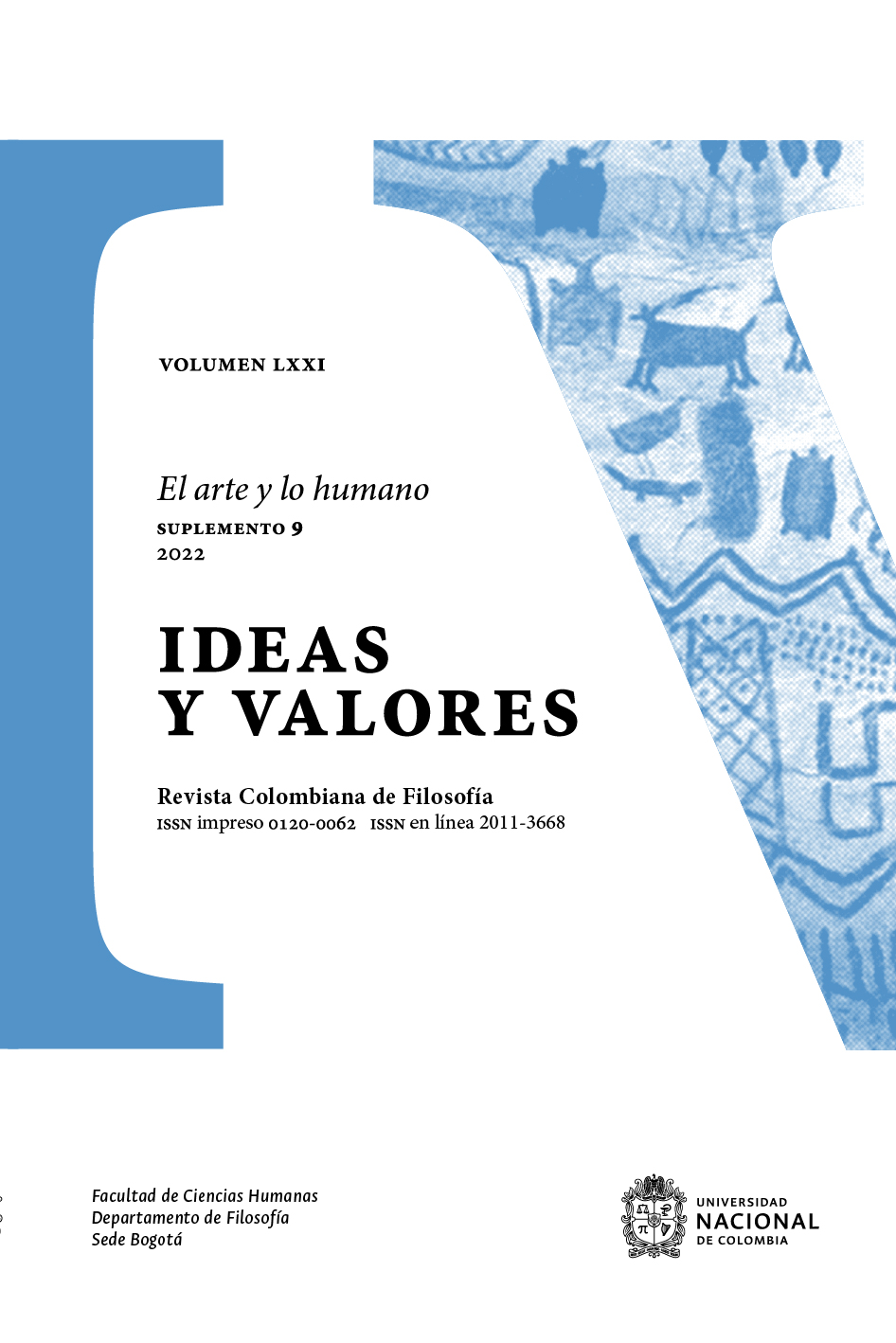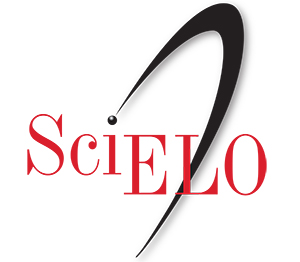Dos concepciones de la segunda naturaleza
Two Conceptions of Second Nature
DOI:
https://doi.org/10.15446/ideasyvalores.v71n9Supl.106741Keywords:
G. F. W. Hegel, I. Kant, mente, naturaleza, reflexión (es)G. F. W. Hegel, I. Kant, mind, nature, reflection (en)
Downloads
El concepto de segunda naturaleza promete proporcionar una explicación de cómo la naturaleza y la razón se pueden reconciliar. Pero dicho concepto está cargado de ambigüedad: se entiende como aquello que une todas las actividades cognitivas y se concibe como un tipo de naturaleza que puede ser modificada por actividades cognitivas. Se intenta investigar esta ambigüedad distinguiendo una concepción kantiana de otra hegeliana. Se sostiene que la idea de una transformación de un ser de prim- era naturaleza en un ser de segunda naturaleza, que se encuentra en el corazón de la concepción kantiana, es errónea.
The concept of second nature promises to provide an explanation of how nature and reason can be reconciled. But such concept is laden with ambiguity. On the one hand, second nature is understood as what binds together all cognitive activities. On the other hand, second nature is conceived of as a kind of nature that can be modified by cognitive activities. The paper aims to investigate this ambiguity by distinguishing a Kantian conception of second nature from a Hegelian one. It argues that the idea of a transformation from a being of first nature into a being of second nature that stands at the heart of the Kantian conception is mistaken.
References
Adorno, Theodor W. “The Idea of Natural History.” Telos 60 (1984): 111-124. DOI: https://doi.org/10.3817/0684060111
Bauer, Nathan. “A Peculiar Intuition: Kant’s Conceptualist Account of Perception.” Inquiry 55.3 (2012): 215-237. DOI: https://doi.org/10.1080/0020174X.2012.678603
Bertram, Georg W. Hegel’s “Phänomenologie des Geistes.” Ein systematischer Kommentar. Reclam, 2017.
Boyle, Brandon. “The Bildungsroman after McDowell.” The Journal of Aesthetics and Art Criticism 69.2 (2011): 173-184. DOI: https://doi.org/10.1111/j.1540-6245.2011.01459.x
Brandom, Robert. “The Structure of Desire and Recognition: Self-Consciousness and Self-Constitution.” Philosophy & Social Criticism 33.1 (2007): 127-150. DOI: https://doi.org/10.1177/0191453707071389
Griffith, Aaron M. “Perception and the Categories: A Conceptualist Reading of Kant’s Critique of Pure Reason.” European Journal of Philosophy 20.2 (2012): 193-222. DOI: https://doi.org/10.1111/j.1468-0378.2010.00404.x
Hegel, Georg Wilhelm Friedrich. Ciencia de la lógica. Primera parte. Traducido por Augusta y Rodolfo Mondolfo. Librería Hachette, 1956.
Hegel, Georg Wilhelm Friedrich. Aesthetics: Lectures on Fine Art. Translated by Thomas Malcolm. Knox. 2 vols. Oxford University Press, 1975. DOI: https://doi.org/10.1093/actrade/9780198244998.book.1
Hegel, Georg Wilhelm Friedrich. “Filosofía del espíritu.” Enciclopedia de las ciencias filosóficas. Traducido por Ramón Valls Plana. Alianza Editorial, 2010a. 431-605.
Hegel, Georg Wilhelm Friedrich. Fenomenología del espíritu. Editado y traducido por Antonio Gómez Ramos. Universidad Autónoma de Madrid / Abada, 2010b.
Heidegger, Martin. El ser y el tiempo. Traducido por José Gaos. Fondo de Cultura Económica, 1987.
Herder, Johann Gottfried. Treatise on the Origin of Language. Philosophical Writings. Translated by Michael N. Foster. Cambridge University Press, 2002. 65-164. DOI: https://doi.org/10.1017/CBO9781139164634.007
Kant, Immanuel. Critique of Pure Reason. Cambridge University Press, 1999.
Larmore, Charles. “Attending to Reasons.” Reading McDowell. Edited by Nicholas Smith. Routledge, 2002. 193-208.
McDowell, John. Mind and World. 2a edición. Harvard University Press, 1996. DOI: https://doi.org/10.2307/j.ctvjghtzj
McDowell, John. “How Not to Read ‘Philosophical Investigations’: Brandom’s Wittgenstein.” The Engaged Intellect: Philosophical Essays. Harvard University Press, 1998a. 96–111.
McDowell, John. “Two Sorts of Naturalism.” Mind, Value, and Reality. Harvard University Press, 1998b. 167-197.
McDowell, John. “Gadamer and Davidson on Understanding and Relativism.” Gadamer’s Century: Essays in Honor of Hans-Georg Gadamer. Edited by Jeff Malpass, Ulrich Arnswald and Jens Kertscher. Massachusetts Institute of Technology Press, 2002. 173-194.
McDowell, John. “Self-Determining Subjectivity and External Constraint.” Having the World in View: Essays on Kant, Hegel, and Sellars. Harvard University Press, 2009. 90-107.
Pinkard, Terry. Hegel’s Phenomenology: The Sociality of Reason. Cambridge University Press, 1994. DOI: https://doi.org/10.1017/CBO9781316036433
Pinkard, Terry. Hegel’s Naturalism: Mind, Nature, and the Final Ends of Life. Oxford University Press, 2012. DOI: https://doi.org/10.1093/acprof:oso/9780199860791.001.0001
Pippin, Robert. Hegel’s Idealism: The Satisfactions of Self-Consciousness. Cambridge University Press, 1989. DOI: https://doi.org/10.1017/CBO9780511621109
Pippin, Robert. “What is the Question for which Hegel’s Theory of Recognition is the Answer?” European Journal of Philosophy 8.2 (2000): 155-172. DOI: https://doi.org/10.1111/1468-0378.00106
Pippin, Robert. “Recognition and Reconciliation. Actualized Agency in Hegel’s Jena Phenomenology.” Recognition and Power: Axel Honneth and the Tradition of Critical Social Theory. Edited by Bert van den Brink and David Owen. Cambridge University Press, 2003. 57-78. DOI: https://doi.org/10.1017/CBO9780511498732.003
Sedgwick, Sally. Hegel’s Critique of Kant: From Dichotomy to Identity. Oxford University Press, 2012. DOI: https://doi.org/10.1093/acprof:oso/9780199698363.001.0001
Wright, Crispin. “Human Nature.” Reading McDowell. Edited by Nicholas Smith. Routledge, 2002. 140-159.
Wood, Allen W. “Kant and the Problem of Human Nature.” Essays on Kant’s Anthropology. Edited by Brian Jacobs and Patrick Kain. Cambridge University Press, 2003. 38-59. DOI: https://doi.org/10.1017/CBO9780511498190.004
How to Cite
MODERN-LANGUAGE-ASSOCIATION
ACM
ACS
APA
ABNT
Chicago
Harvard
IEEE
Turabian
Vancouver
Download Citation
License
Copyright (c) 2023 Los derechos son del autor(es), quien(es) puede re-publicar en parte o en su totalidad el documento ya publicado en la revista siempre y cuando se dé el debido reconocimiento a Ideas y Valores

This work is licensed under a Creative Commons Attribution-NonCommercial-NoDerivatives 4.0 International License.
The Creative Commons Attribution-NonComnercial-No Derivatives 4.0 Internacional License authorizes copying and redistributing the material in any means or format, provided that credit is granted to the authors and to Ideas y Valores as the source of the original publication. Copying or distributing the contents of the journal for commercial purposes is not allowed; neither is the adaptation, derivation, or transformation of the contents, without previous authorization by the authors and the editors of Ideas y Valores. For further information regarding the terms of this license, please consult http://creativecommons.org/licenses/by-nc-nd/4.0/legalcode.







1.jpg)
.png)


1.png)
.png)
.png)
.jpg)

.png)









